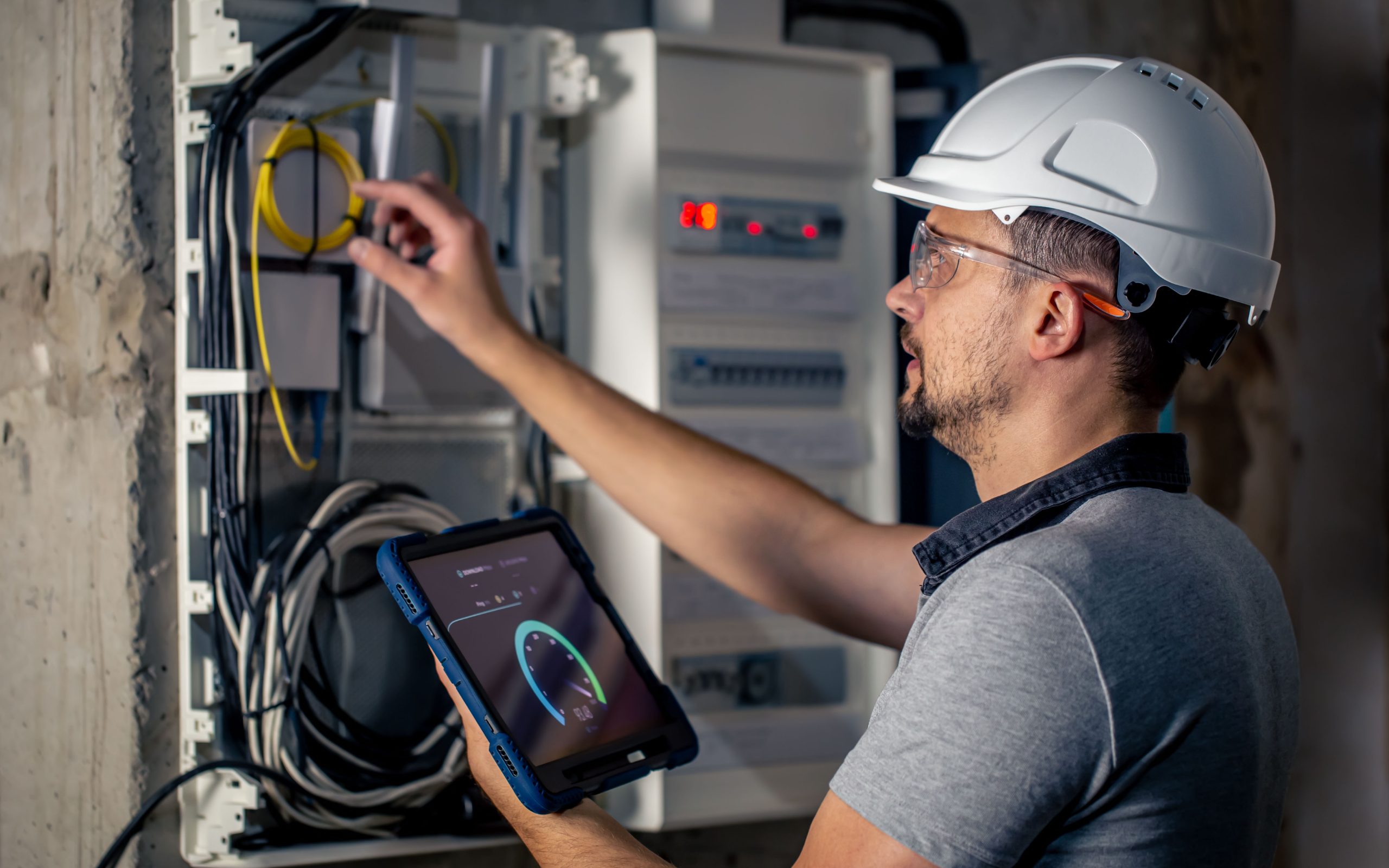
Renewable energy installations are rapidly gaining popularity worldwide as governments, businesses, and homeowners transition to cleaner power sources. Among the many professionals driving this green revolution, electricians play a pivotal role in ensuring these systems function efficiently and safely. From solar panels to wind turbines, electricians are essential to the design, installation, and maintenance of renewable energy projects. Here’s a closer look at the crucial role electricians play in this ever-evolving industry.
Planning and System Design
The foundation of any renewable energy installation lies in careful planning and design. Electricians collaborate with engineers, architects, and project managers to map out the electrical requirements of the installation. For example, in solar panel systems, electricians are responsible for calculating the optimal power load, selecting suitable inverters, and ensuring compatibility with the existing electrical infrastructure.
Their expertise ensures that the system not only meets the property’s energy needs but also complies with local building codes, regulations, and utility standards. In large-scale wind or solar farms, electricians often work with grid specialists to design electrical connections that facilitate seamless integration into national or regional power networks.
Installation of Solar Panels and Wind Turbines
Electricians are on the frontlines of installing the electrical components of solar panels, wind turbines, and other renewable systems. Solar installations wire photovoltaic (PV) panels, connect them to inverters and establish connections to battery storage units or the electrical grid.
In wind energy projects, electricians are responsible for wiring the turbines’ internal systems and connecting them to transformers that regulate the electricity output. Safety is a top priority during installation, as these high-voltage systems pose significant risks if not properly configured.
Battery Storage and Microgrids
Battery storage solutions are becoming increasingly vital as renewable energy systems aim to overcome challenges related to intermittency. Electricians install and configure battery storage units, ensuring they are integrated smoothly with renewable systems. Whether it’s a small residential setup or an extensive commercial storage system, electricians ensure that power flows efficiently between the battery and the grid or building.
In addition to battery storage, electricians are involved in developing microgrids—small-scale power grids that can operate independently or in conjunction with more extensive networks. These systems often rely heavily on renewable energy and require skilled electricians to design and maintain the electrical infrastructure that keeps them running smoothly.
Ensuring Safety and Code Compliance
Renewable energy systems, like any electrical infrastructure, must meet strict safety standards to prevent accidents and ensure reliability. Electricians inspect installations to confirm they adhere to safety codes and guidelines, including those set by the National Electrical Code (NEC) in the United States.
They also conduct grounding and bonding to protect systems from electrical surges or lightning strikes. Additionally, electricians must ensure that inverters, disconnect switches, and other safety mechanisms are correctly installed to allow for safe maintenance or emergency shutdowns.
Troubleshooting and Maintenance
Renewable energy systems require ongoing monitoring and maintenance to operate efficiently over time. Electricians play a crucial role in troubleshooting any electrical issues that arise, from faulty wiring to malfunctioning inverters. For solar panels, they may need to repair or replace damaged modules and inspect wiring for wear and tear caused by weather exposure.
Wind turbines present unique challenges, often requiring electricians to work at great heights and in harsh conditions to repair or maintain electrical systems. Timely maintenance helps prevent downtime and ensures the maximum return on investment for both residential and commercial installations.
Advancing with Smart Technologies
The renewable energy industry is rapidly adopting intelligent technologies, such as internet-connected energy management systems and artificial intelligence (AI)–driven monitoring tools. Electricians must stay up-to-date with these advancements to remain relevant in the field.
They install and configure intelligent meters, automated controls, and software platforms that optimize energy production and consumption. Electricians also assist homeowners and businesses in adopting energy-efficient appliances and technologies, further reducing their carbon footprint.
The Growing Demand for Skilled Electricians
As the shift toward renewable energy accelerates, the demand for electricians with specialized knowledge in green technologies continues to grow. Many vocational training programs and technical colleges now offer courses focusing on renewable energy systems to prepare electricians for this expanding market.
Additionally, governments and industries are offering incentives and certifications, such as the North American Board of Certified Energy Practitioners (NABCEP) certification for solar professionals, to encourage electricians to develop expertise in renewable installations.
Electricians are essential contributors to the renewable energy revolution. Their expertise in designing, installing, and maintaining electrical systems ensures that solar panels, wind turbines, battery storage, and other technologies function efficiently and safely. As renewable energy becomes the backbone of the global power supply, electricians will continue to play a vital role in powering a greener, more sustainable future.
With ongoing advancements in innovative technologies and increasing demand for renewable energy installations, electricians will find themselves at the forefront of one of the most exciting transformations in the energy sector. Their work not only ensures the success of these systems but also contributes significantly to reducing carbon emissions and promoting environmental sustainability.